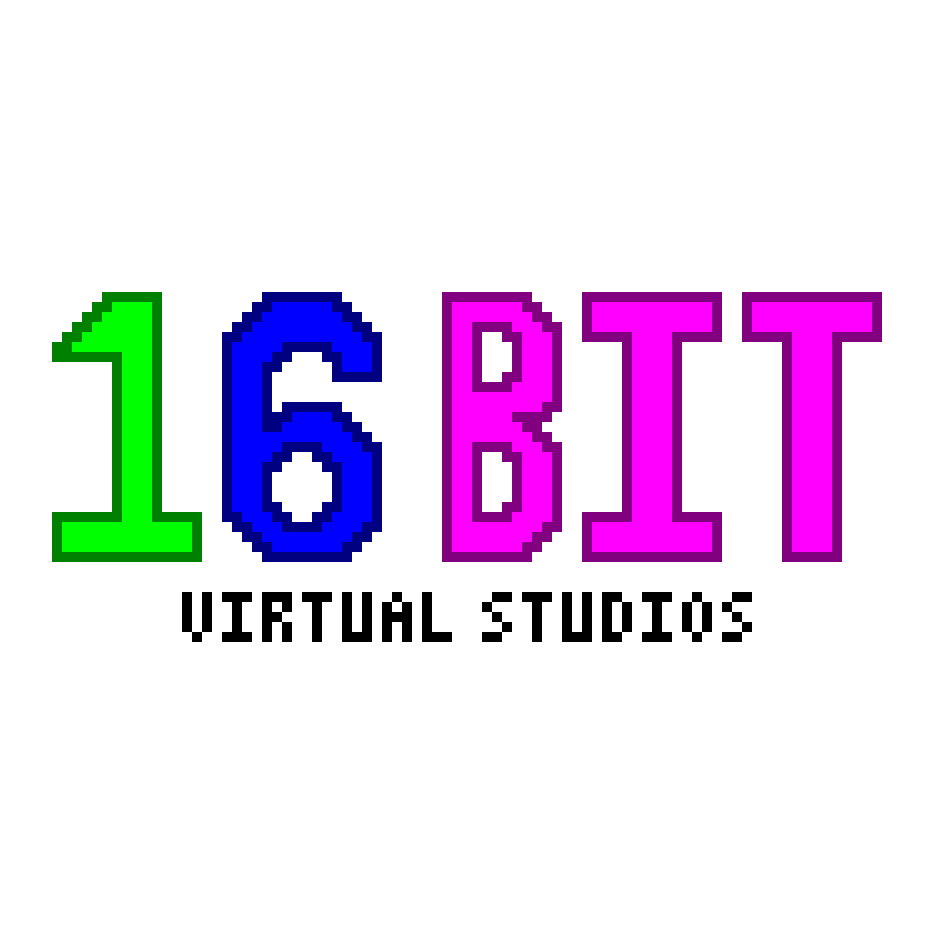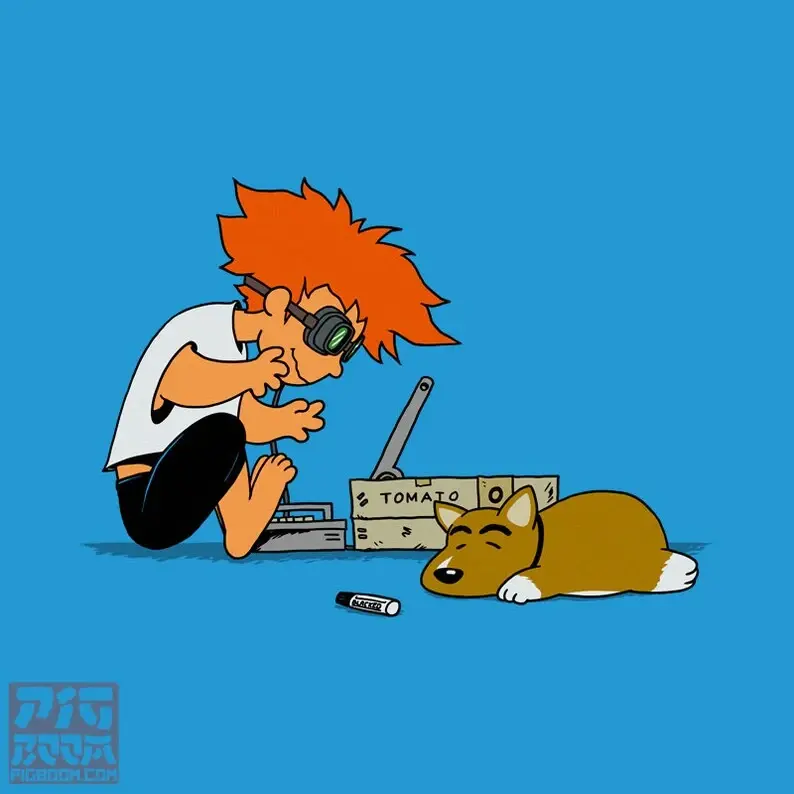I have been daily driving a dual booted laptop for the past two years. After a year of distro hopping I settled with fedora + kde and never looked back. I really liked the auto nvidia driver config and it made everything so pleasant to work. Since the last 8 or 9 months I decided to do gaming using bottles and proton ge. I cannot afford to buy games and bottles is a God send at that. Now I realized that I had not logged into my windows partition in over 6 months. So I logged in to check and it told me it needs to download 8 gigs of updates. That sent me into rage and so clean installed everything to be fedora. I have 250 gb of storage locked in limbo because of windows( I have a 512 gb ssd so it was a lot) and today after everything was setup, the os took only around 20gb minus the games. Never felt happier.
So I logged in to check and it told me it needs to download 8 gigs of updates. That sent me into rage and so clean installed everything to be fedora. I have 250 gb of storage locked in limbo because of windows
Sounds like you took your time, got comfortable, found a distro you liked, and generally did it all the right way. Now watch as with each new headline you see about Windows or MS you become happier and happier with your decision. There’s no better advertisement for Linux than the behavior of MS and Windows. 😁
Congrats on dumping Windows. One of us! One of us!
Early 2000s, Microsoft starts putting sketchy telemetry into XP: 🙂
Late 2000s, MS ramps that shit up even more with Vista and 7 while the bloat rises to never before seen levels with the architecture change to 64 bit: 😁
Early 2010s, MS includes actual fucking ads into the OS: 😆
Early 2020s, MS jams AI into it because it’s the thing to do and everybody else is doing it after nobody really asked: 🤣
Fuck Microsoft.
Exactly. Plus I was super creeped out by the news that apparently Microsoft tries to decrypt files I have stored encrypted on my one drive and by default sets up my home directory to be on one drive. What the fuck
holy shit, if that’s true then I’m so nuking windows off my machines
wow.
What’s that “one of us, one of us” reference?
I never even wondered about it until you asked lol. But the answer is pretty interesting.
Origin is this scene from a very old film called Freaks. https://youtu.be/bBXyB7niEc0
Here is an alternative Piped link(s):
https://piped.video/bBXyB7niEc0
Piped is a privacy-respecting open-source alternative frontend to YouTube.
I’m open-source; check me out at GitHub.
I did not expect that!
Same! Apparently it’s been referenced in bunches of other things though.
Congrats, and welcome to the club!
Thanks. I was already part of the club. Now just I burnt the access card to the other club
I remember when I did the switch in 2008 and never looked back. I had a similar experience where across a few years I have been trying different distributions and finally settled on Lubuntu. Years have passed and different machines as well. Now my main driver is a Steam Deck with his Arch based OS and a secondary pure Arch on a sd card for more specific tasks.
Linux made my life more comfortable and relaxed, without even mentioning secure. My family uses Linux now, Windows is long dead.
We are free.
I actually set up Linux on my family machine 1 year ago and they don’t even notice since all they need is a browser and vlc. So they have been daily driving Linux longer than me :)
This is the way. Dealing with the significantly fewer problems they have is easier too. Most things I can ssh in without even touching the computer and fix the issue from my laptop.
I remember when I did the switch in 2008 and never looked back.
I wasn’t far behind you. My first laptop around that time came with Vista installed. Didn’t take long for me to switch Ubuntu after that, haven’t been back to Windows since.
using bottles and proton ge
I don’t think it’ll make much of a difference, but according to the git repo, you should be using wine-ge instead. Also Lutris is another option that does the same thing, but has easy install scripts for GOG, Epic Games, Ubisoft Connect, and EA App.
My process flow has been Steam, if not Steam then Heroic, if not Steam or Heroic then Lutris. I have yet to find a game unplayable.
The only thing I haven’t figured out how to do is get Fusion 360 running stable.
Feels good to ditch Windows don’t it?
It’s like a brick off my chest
Hell yeah! Welcome, from an admittedly also new full-time Linux user.
For anyone wondering what Proton GE is, it’s Proton on steroids: https://github.com/GloriousEggroll/proton-ge-custom
For instance, even if you have an old Intel integrated GPU, chances are you can still benefit from AMD’s FSR just by pushing a few flags to Proton GE, even if the game doesn’t officially support it, and you’ll literally get a free FPS boost (tested it for fun and can confirm on an Intel UHD Graphics 620).
We all just bask in the brilliance of a glorious eggroll.
My laptop is the same except, I keep a Windows partition because the RGB keyboard controller is only available in a Windows app. That Windows partition exists in a post apocalyptic dystopia where Windows belongs; it has never, nor will ever see the internet. It is blocked my my network firewall. Windows is like a less than useful bootloader options tab.
Not knowing which keyboard laptop combo you have, but have you looked at openrgb? Works nicer than the stock tool I was using in my experience!
Thanks for the suggestion. I’ll look into it. I’m a bit skeptical because the changes made in Windows are persistent, the secondary function keys give quick access to some of these features (but only 3 course brightness PWM settings for RGB), but mostly because there is a device on the USB device tree that is unknown to the Linux kernel on mainline-fedora.
Maybe there is some kind of kernel configuration option that just needs to be added, but the bootloader rejects custom keys generated for secure boot. Without my own keys I’m stuck with the shim and can’t run my own signed kernel. It might be possible to set the keys by booting into UEFI with Keytool, but my motivation hasn’t carried me that far into the problem yet. I could be wrong and the unknown USB device could be unrelated, and openrgb could work. Thanks again.
It will depend on the specific hardware, but I can vouche for openrgb. It works for me g502 hero mouse, and my asrok mobo/aio coolers fan RGB. Infact, I have more options than the motherboard gives me lol.
Would that work with my Aoris 3070 ti?
Congrats! Hope you keep having a great experience with linux 😁🐧
I genuinely do. I can’t even imagine why anybody would use software whose source code isn’t visible. Not cool.
Not sure how Bottles and not buying games directly relate (other than Bottles also being able to play pirated games obviously), but anyway.
I switched to Linux on my main computer as a “New Year’s Resolution” and so far I’m not missing much. I did cross-grade from an RTX 3080 to a Radeon 7800 XT because 95 % of the problems I experienced were related to Nvidia and their crappy drivers, but after that I had little issues in general.
I also use Fedora + KDE. KDE on Wayland seems to be the most reliable way to get VRR (FreeSync) working with multiple monitors. I installed it onto a new SSD I bought for this purpose, but I’ll transition more and more SSDs over to the Linux install as time progresses. The only reason I booted into Windows again so far was to check out some application’s configuration so I could replicate it on Fedora’s side. I didn’t even bother to install the Radeon GPU driver under Windows.
I could complain about smaller issues, but these are mostly related to third party software where the Linux version has some weird quirks (or where there’s straight up no Linux version, mainly games).
Overall very solid and I assume it only gets better with time.
The main reason I used fedora was because of hassle free nvidia (as muchjh as they can do until nvidia open sources everything and not just the kernel modules).
For me it has been that I have bought the games at some point and the versions offered on GoG or steam haven’t been the full versions pf the game so I’ve used wine bottles. Proton is a godsend
All these posts about Linux have me curious, especially because I just updated my hardware and have enough parts leftover to make a new PC. My main PC still has to run Windows because I use Ableton for music, but you guys are making me want to make the 2nd PC Linux just for shits and giggles. Especially if it plays well with Nvidia, my old card is a 2070.
Your old PC is better than my current one, lol.
Nvidia doesn’t like Linux desktop users. The situation is getting better, but it’s still not great. If you stick to the mainstream distros (Ubuntu, Fedora) and officially supported game stores (Steam), you should be totally fine. Other distros and game launchers can be a pain, how much depends on how experienced you are with computers (required skills ranging from “editing text files” to “knowing the difference between DirectX and Vulkan”).
If you have a leftover PC, you could consider taking a look at one of the SteamOS forks and turn your PC into a living room console/media center, especially if you have a decent collection of Steam games already. After installation, you can control the entire system with just a controller, and with a little messing about you could add streaming services such as Netflix to it as well.
“Working well” is relative. You can make Nvidia work, but there are some caveats. Currently, there’s driver 535 and 545, and both have different quirks. Neither works particularly well with Wayland, certain applications can flicker when they need longer to draw than the display’s refresh rate.
So, when I tried with the 3080, I eventually gave up and used X11. X11 has a technical limitation though, and it prevents VRR to work with multiple displays. That’s because X11 combines all displays to a single virtual “screen”, so a full screen application on one display can’t set the refresh rate of that display independently. This isn’t a problem with single monitor setups though.
As I tested Baldur’s Gate 3, I found that choosing Vulkan in the launcher resulted in about half the performance compared to Windows, and DirectX 11 (which ironically gets translated to Vulkan by DXVK) had graphical glitches like black boxes instead of houses etc.
Knowing all that and if you’re willing to experiment with driver versions, it’s not that horrible, it’s just not as straightforward as AMD Radeon on Linux (or Nvidia on Windows for that matter).
Not sure how Bottles and not buying games directly relate (other than Bottles also being able to play pirated games obviously), but anyway.
For a good gaming experience on Linux, you need either Steam or unofficial wrappers. If you pirate games because you don’t have money and don’t want to wait until you do, Bottles is a whole lot easier than setting up custom Wine environments with all the necessary patches.
Yeah I agree, my point was just that Bottles isn’t especially made for piracy, it can play “legit” copies of games just as well.
I’m not condemning them for pirating games, sail the high seas all you want!

Also checkout Heroic Launcher, Epic gives free games every week, there’s plenty of fun to have with those too.
I get about 4GB of updates twice a month, with a couple gigabytes of updates every week or so because of Nvidia and Flatpak. That’s Manjaro, though.
Fedora slowly trickles their updates into your system, but I don’t think it’s much smaller. You’ll get small updates every day rather than huge updates every month.
Not saying your switch to Linux was bad or anything, but maybe temper your expectations.
What blows my mind about windows updates is just how long they take to actually install. It’s not even the reboots that bother me. Just the sheer time frames.
Yeah, that’s always puzzled me as well. Part of the reason is that Windows does a lot more than your average Linux distro, and another part is probably that Linux lacks proper antivirus, but even then Windows Update has always seemed weirdly inefficient to me. It seems to be stuck diffing/decompressing on a single core, barely hitting the SSD until it does everything at once.
It wasn’t the fact that I got updates that bothered me. It’s the fact that this update will take up more space on my disk and not replace previously occupied 8 gb that irked me. Some how, the space occupied by windows jut keeps on increasing.
Windows keeps update files around fir quick reverts. If you use automatic BTRFS snapshots, you’ll see a similar effect, though those snapshots are stored in the file system rather than encoded in a WinSxS folder. I believe the standard cleanup timeout is about 30 days, but it’s been a while since I used Windows.
These diffs are especially big on full version upgrades (i.e. the update to 22H2) which aren’t given that much special attention I the update UI but are very much like an upgrade from Fedora 38 to Fedora 39, or Ubuntu 22.04 to 24.04. It probably doesn’t help that Windows explorer doesn’t understand hard links, so Windows Explorer will claim the Windows folder will take up several times the real size on disk while the hard links are all over the place.
The worst part is that even Microsoft’s own cleanup tools get confused and remove too many of these files. I’ve had to do system restore because cleanmgr decided to remove 10GB of “old Windows Update files” that turned out not to be old enough to just remove. I may prefer Microsoft’s solution to DLL hell over Linux’s because old stuff will work for longer, but if their own software can’t deal with the resolving complexity, maybe they should take a step back and figure out how to make their solution stable.
This is why I stay away from Flatpack and Snap (and anything node or Electron). If I get a gig with my weevly Arch update, I think it’s a lot.
Can’t avoid it with some programs, but if there are options, there’s a set of technologies I avoid like the plague.
The Flatpak issue is specifically because of distributions technicalities related to the proprietary driver. On AMD or Intel this isn’t a problem at all, in fact the block based update mechanism is much more efficient than most distro updates. It’s rather annoying, ur I believe it’s being worked on by the Flatpak devs.
Manjaro chooses to keep software back for a while, so multiple weeks of major updates all come at once. Add to that CUDA, the Nvidia Docker container, and LaTeX, and you easily get multiple gigabytes per update. It’s not really a problem in the age of terabyte SSDs and gigabit internet, even if it does feel quite pointless.
I’ve never really had many issues with Electron on Arch based distros. Arch packages most Electron applications as the required bits for a single Electron package that gets updated individually. On all other distros, Electron does waste a lot of space, though.
Why are large packages a problem? Are you running low on disk space?
I also don’t bother with Flats and snaps. Too much hassle. I like the fact that Linux uses system wide linkable so files.
Welcome to the party pal
Thank you. Drinks on me!!!
so clean installed everything to be fedora.
It may not have been necessary to do a complete reinstall. If fedora uses LVM or BTRFS for your partitions (which it likely does) then you could have just formated the windows drive and added it to your “pool”.
I actually did everything on Ext4 and had a separate home partition which was only 30gigs. So that was the main gripe in the previous install I had I thought to rectify it.
Alas I didn’t use btrfs this time also and did Ext4. Maybe I should have enabled snapshots. Who knows. I may just be an adventurous dude.
Are you using LVM? It’s a layer that sits under ext4 that allows for partition management similar to btrfs. You can find out if you’re using it by running
sudo lvdisplayand you would see some logical volumes listed.


















